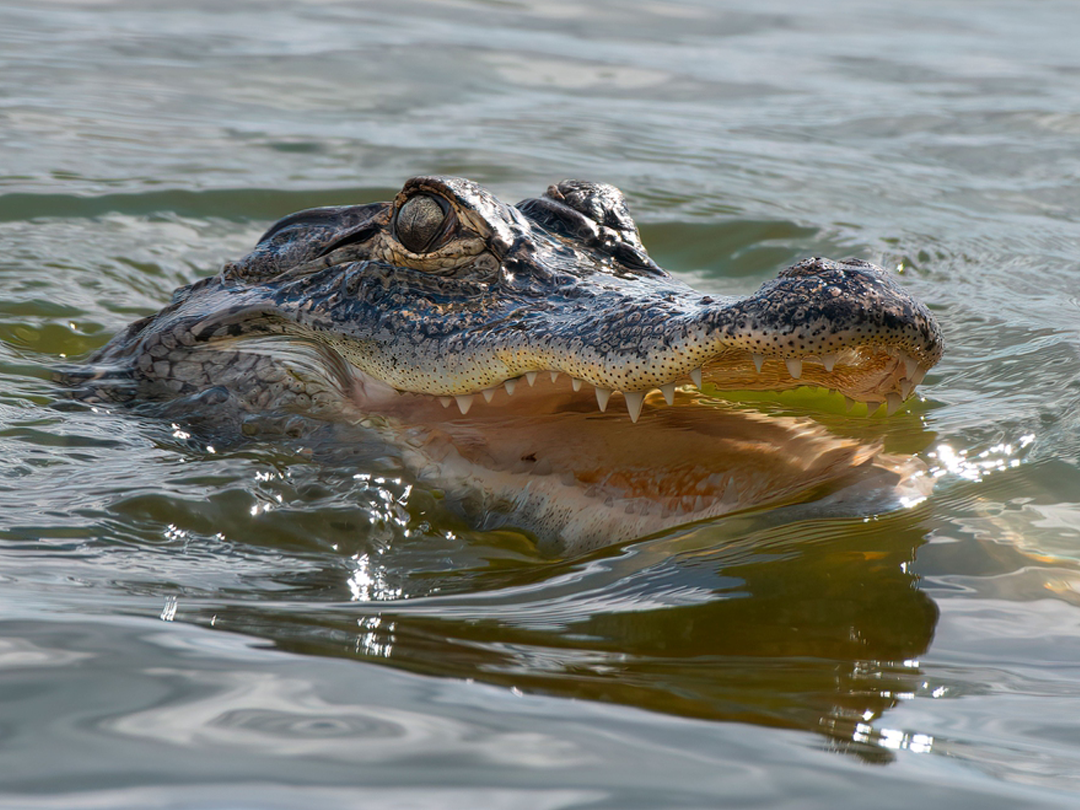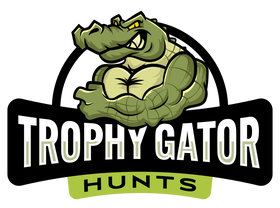How Long Is Alligator Hunting Season In Florida?

Alligator hunting in Florida is an adrenaline-pumping experience, but before heading out, you need to know, “How long is alligator hunting season?” Timing is everything and knowing the designated months for the hunt allows participants to plan their trips.
Florida’s unique ecosystem supports a thriving alligator population, making these hunts both necessary for conservation and exhilarating for sportsmen.
The Official Season for Public Alligator Hunting
Florida offers a regulated alligator hunting season to manage population levels while allowing licensed hunters to participate in this long-standing tradition. The primary public alligator hunt runs from mid-August through early November.
This period gives hunters several months to track and capture alligators across approved areas, offering ample time to plan multiple outings.
Unlike other game seasons that may fluctuate, this timeframe remains consistent, allowing for proper preparation each year and making sure that hunters can refine their skills season after season.
During this season, participants must follow state regulations, including acquiring the appropriate permits. Florida issues a set number of tags, and each hunter is limited to a specific number of alligators. This system prevents overhunting and makes for a sustainable experience for future generations.
Hunters must also adhere to legal hunting methods, which include using authorized equipment such as harpoons, bang sticks, and snatch hooks. This controlled approach helps maintain fair chase ethics and preserves the integrity of alligator hunts in Florida.
Private Land Alligator Hunting Opportunities
While the public alligator season follows strict timelines, private landowners enjoy greater flexibility. Those with the proper authorization can take part in Florida alligator hunting year-round.
This option is popular among hunters who prefer to avoid the peak-season crowds or who have access to prime hunting land with less competition.
On private property, hunters still need the appropriate permits, but they are not restricted to the August-November window. This makes it an attractive option for those who wish to schedule hunts outside the standard season, particularly those seeking a more customized experience.
Private land hunts often result in larger alligators due to reduced hunting pressure, allowing them to grow undisturbed for longer periods.
Hunters who frequent private lands also benefit from a more controlled environment, where scouting and baiting strategies can be fine-tuned without interference from other groups.
The Best Time to Hunt for Trophy Gators
Different parts of the official season offer distinct advantages. Early in the season, gators tend to be more active due to the warm weather, which increases sightings and successful catches.
Many experienced hunters take advantage of these conditions, as alligators are more likely to surface frequently and move through shallow waters in search of food.
As temperatures cool in late October and early November, alligators become less mobile, making them more difficult to locate, requiring additional patience and skill to secure a successful hunt.
Nighttime hunting, which is allowed with the correct permits, is often the most productive. Alligators are nocturnal by nature, meaning they are more active after sunset. Using artificial lights and proper baiting techniques increases the likelihood of a successful hunt.
Many seasoned hunters prefer this method because it provides a thrilling experience under the cover of darkness. Spotting the telltale red glow of an alligator’s eyes reflecting in the water adds an element of excitement to the hunt, making each encounter a heart-pounding moment.
Success during night hunts often depends on keen observation, quick reflexes, and an understanding of alligator behavior in their natural habitat.
For those wondering “How long is alligator hunting season?”, the structured timeframe means that hunters will have a well-defined window to pursue their game. Whether opting for public or private land hunts, planning ahead and knowing the seasonal variations will contribute to a rewarding experience.
Florida’s Alligator Hunting Permit System
Participating in Florida alligator hunts requires a permit from the Florida Fish and Wildlife Conservation Commission (FWC). The application period begins in May, and successful applicants receive their permits before the season opens in August.
A limited number of permits are issued, making early application a priority for those serious about securing a spot.
Each permit allows a hunter to harvest two alligators. Participants must also obtain an alligator trapping license, which is required for all hunters participating in the public season.
These regulations are designed to maintain the balance of Florida’s alligator population while still allowing for an exciting hunting experience.
Where Can You Hunt Alligators in Florida?
Florida’s landscape is rich with alligator habitats. Lakes, rivers, swamps, and marshes across the state are designated hunting zones during the public season. Hunters must stick to their assigned areas based on permit allocations. These locations are carefully managed to prevent overhunting in any one region.
Private land hunting, on the other hand, does not have strict location limitations. Landowners and permitted guests can hunt across their property year-round, making it a more flexible option. Whether in public waters or on private lands, Florida’s diverse terrain makes for an unmatched alligator hunting experience.
Hunting Methods and Equipment Regulations
Florida law dictates the types of equipment hunters can use during alligator season. The most common tools include harpoons, bang sticks, snatch hooks, and crossbows. Firearms cannot be used to shoot free-swimming alligators, but they may be used once the alligator is secured.
Boats are the primary mode of transportation for most hunts, allowing hunters to access remote areas where alligators thrive. Airboats are particularly popular due to their ability to get through shallow waters. Safety measures, including life jackets and proper lighting for nighttime hunts, are mandatory.
The Conservation Aspect of Alligator Hunting
Florida alligator hunting is instrumental in Florida’s conservation efforts. Regulated hunting prevents overpopulation, which reduces conflicts between alligators and humans.
Without proper management, alligators can become a hazard in residential areas, golf courses, and public waterways. They might pose a risk to both property and human safety. By controlling the alligator population, wildlife officials can help guarantee a more balanced ecosystem.
The revenue from hunting permits also supports ongoing conservation programs. These initiatives focus on habitat preservation, population studies, and public education on alligator safety.
Hunters contribute directly to these efforts by participating in regulated hunts, assisting with the health of the species while keeping populations sustainable.
Preparing for a Successful Alligator Hunt
A well-planned hunt increases the chances of success. Scouting locations before the season opens can help identify high-traffic alligator zones.
Many experienced hunters also recommend practicing with equipment ahead of time for smoother execution when the moment arrives, making sure to familiarize themselves with tools like rods, reels, and harpoons.
Clothing and gear choices should match the season’s conditions. Light, moisture-wicking fabrics work best in the summer heat, while layered clothing may be necessary for cooler nights later in the season.
Bringing along the right tools, including headlamps for night hunts, can make all the difference in a successful outing.
What Happens After the Hunt?
Once an alligator is harvested, proper handling is required. The FWC mandates that all harvested gators be tagged immediately to maintain legal compliance, making certain hunters follow necessary regulations.
Afterward, many hunters choose to process their catch into meat and leather products, maximizing the value of the hunt.
Alligator meat is a sought-after delicacy, with a mild flavor often compared to chicken or fish. Many hunters take advantage of meat processing services to turn their catch into steaks, sausages, or jerky.
The hide can also be tanned for use in belts, boots, and other leather goods, contributing to the local economy by creating high-quality, handcrafted products.
Trust Trophy Gator Hunts for the Ultimate Adventure
Trophy Gator Hunts brings you the best alligator hunting experience Florida has to offer. Our team has spent decades perfecting the art of gator hunting, and now we’re ready to take you on the adventure of a lifetime.
Whether you’re a first-timer or an experienced hunter, we make sure every outing is exciting, safe, and rewarding.
We handle everything—from securing the right gear to guiding you through every step of the hunt. Our expert guides know where to find the biggest gators and how to help you land a trophy-worthy catch.
The thrill of the chase, the strategy behind each hunt, and the satisfaction of a successful capture make every trip unforgettable.
If you’re looking for the ultimate gator hunting experience, we’ve got you covered. Call now at 863-272-1992!

